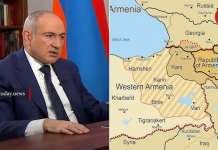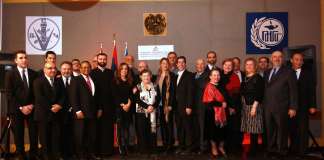The heads of various Christian churches in Jerusalem united in opposition to the Jerusalem Municipality’s decision to impose municipal taxes (Arnona) on church properties, reports The Jerusalem Post.
In a joint statement released on behalf of the Patriarchs and Heads of Churches on Sunday, the leaders expressed deep concern over the municipality’s move, which they argued contradicted centuries of historical agreements between the churches and civil authorities.
“We declare that such a measure both undermines the sacred character of Jerusalem and jeopardizes the Church’s ability to conduct its ministry in this land on behalf of its communities and the worldwide church,” stated the collective heads of churches.
The statement emphasized the significant contributions of Christian churches to Jerusalem, including investments in schools, hospitals, homes for the elderly, and facilities for the disadvantaged.
The heads of churches called upon the Jerusalem Municipality to retract its decision and uphold the historically sanctioned status quo. They emphasized the importance of maintaining Jerusalem’s sacred character and protecting the churches’ ability to fulfill their ministries.
The statement was signed, among others, by Patriarch Nourhan Manougian of the Armenian Apostolic Church Patriarchate of Jerusalem, and Msgr. Georges Dankaye of the Armenian Catholic Patriarchal Exarchate of Jerusalem.
The churches’ collective opposition to the municipal tax underscored their commitment to preserving Jerusalem’s religious and social fabric, reflecting concerns shared by the Christian community in the Holy City.
The conflict over municipal taxes on church properties in Jerusalem had been ongoing for several years. In 2018, the Jerusalem Municipality announced plans to collect NIS 650 million in taxes from properties owned by churches that are not used as houses of worship. This decision led to significant backlash from church leaders, who viewed the move as violating longstanding agreements and international obligations guaranteeing their rights and privileges.
The situation escalated when church leaders closed the Church of the Holy Sepulcher in protest.
In response to the outcry, Prime Minister Benjamin Netanyahu intervened, halting the tax collection efforts and forming a commission led by Regional Cooperation Minister Tzachi Hanegbi to find a resolution. This intervention aimed at preserving the status quo and preventing further damage to Israel’s relations with the global Christian community.














